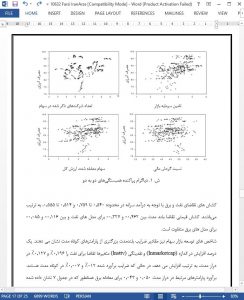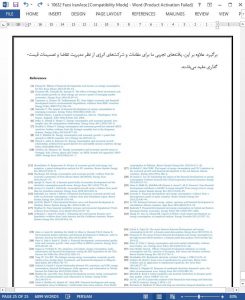Abstract
This paper investigates the impact of stock market developments on oil and electricity demand of OECD member countries. We conduct different panel data methodologies and use annual data ranging from 1996 to 2011. The overall findings substantiate that income, real prices, size of the stock market and liquidity are important determinants for both oil and electricity demand. We also compute long-run elasticity coefficients by using a simple Partial Adjustment Model (PAM) and find that the long run elasticity coefficients are larger than the short run parameters. Moreover, our results show that the demand for oil and electricity is inelastic with respect to both own real price and real income over the short-run and the long-run. From a policy making perspective, the findings suggest that potential policy tools to reduce energy consumption may not be useful as the demand for energy is inelastic with respect to energy prices. Our results also manifest that although stock market deepening variables do not have a large effect on energy use as energy price and economic growth have, market size and liquidity significantly affect energy consumption. Therefore, energy demand estimations based on solely energy price and income may be inaccurate when some stock market development indicators are excluded. The empirical findings of this paper provide further insights for policy makers, energy companies and energy economists in terms of demand management policies and pricing decisions.
1. Introduction
A stock market is the barometer of an economy as market prices mirror expectations of investors on future economic outlook. Stock market development helps achieve higher economic growth by providing extra income, increasing capital accumulation and diversifying risks. Economic growth also considerably hinges on energy since firms’ production and household consumption are directly related to energy use, particularly to oil and electricity consumption. Therefore, there is a significant link between energy consumption and stock market development. There are two main channels between stock market development and energy demand. The first channel is the short-run activity via wealth effect. As a leading indicator for future economic prospect, increased stock market activity affects consumer and business confidence which in turn increases demand for energy. Consumers can purchase “large-ticket” items such as automobiles and machinery that need a large amount of energy as stock market investments increase consumer spending by providing additional income and capital gains to individuals and firms. The second channel is the investment channel, which helps companies to access source of funding with equity financing. As business activities boost, production raises in an economy, so the demand for energy increases. 6.
Conclusion
Although price and income have widely investigated in the energy market literature, little has done on the effects of stock market development on energy demand. This study uses stock market development indicators to examine the links between financial markets and energy demand in OECD countries since majority of firms’ performance listed in the stock market is directly or indirectly related to energy consumption in an economy.










